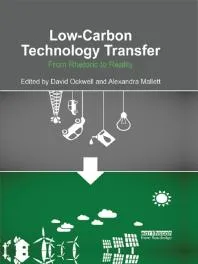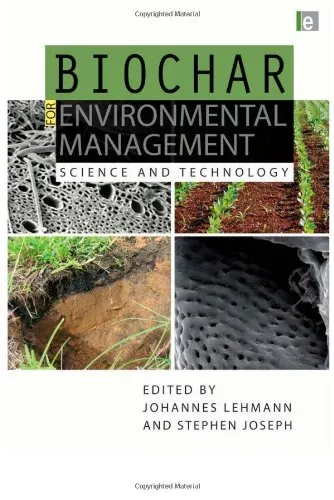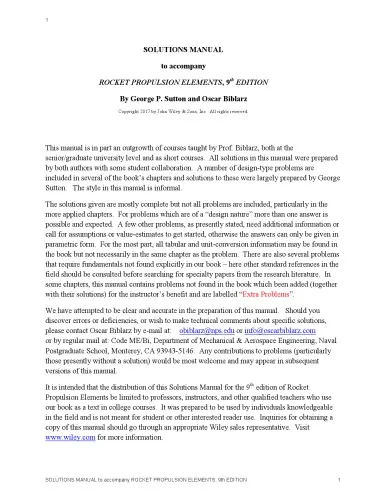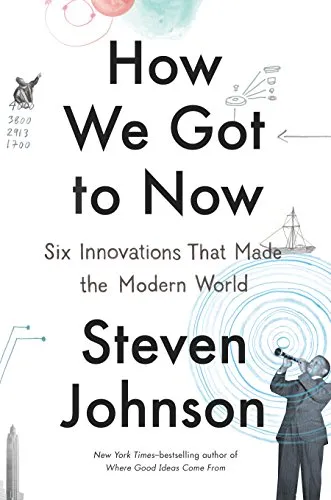Low-Carbon Technology Transfer : From Rhetoric to Reality
4.0
Reviews from our users

You Can Ask your questions from this book's AI after Login
Each download or ask from book AI costs 2 points. To earn more free points, please visit the Points Guide Page and complete some valuable actions.Related Refrences:
Introduction to "Low-Carbon Technology Transfer: From Rhetoric to Reality"
Climate change is an urgent global challenge that demands immediate and collaborative action. One of the critical ways to address this challenge is through the effective transfer of low-carbon technologies from developed to developing nations. However, despite decades of discussions, agreements, and policy frameworks, translating the rhetoric of low-carbon technology transfer into practical and sustainable reality remains a daunting task.
In "Low-Carbon Technology Transfer: From Rhetoric to Reality", we delve into the myriad dimensions of this pressing issue. The book provides a comprehensive, multidisciplinary analysis that combines perspectives from climate policy, sociology, economics, and international relations. It seeks to bridge the gap between theoretical frameworks and on-the-ground realities, offering actionable insights for policymakers, businesses, and academics alike.
Written for a global audience, this book challenges existing paradigms and advocates for innovative, inclusive, and equitable approaches to technology transfer in the low-carbon era. Its goal is not only to dissect the complexities involved but also to inspire meaningful dialogue and collective action.
Detailed Summary of the Book
Climate technology transfer refers to the process of sharing knowledge, skills, and physical technologies necessary for countries to adopt greener practices and reduce carbon emissions. But global power dynamics, economic disparities, and institutional barriers have rendered this process uneven and inequitable. This book addresses these barriers while aligning technology transfer with the principles of sustainability and integrated development.
The text is divided into several major components. Early chapters outline the historical context of low-carbon technology transfer as part of international treaties and agreements, including the Kyoto Protocol and the Paris Agreement. Detailed attention is given to the economic, political, and social impediments that developing nations face when accessing new technologies.
Emphasizing the shared but differentiated responsibilities of developed and developing countries, the book explores successful case studies of technology transfer, illustrating key lessons that can be replicated or adapted for future initiatives. Furthermore, the authors emphasize the need for fostering innovation at the local level, rather than solely importing technologies from wealthier nations. This requires investment in local intellectual and technical capacities, creating the groundwork for long-term sustainability.
The later chapters propose a bold policy agenda, one rooted in inclusivity and collaboration. Recommendations range from reforming patent regimes and intellectual property laws to improving North-South cooperation mechanisms and developing funding models that prioritize inclusiveness without compromising efficiency.
Key Takeaways
- Effective low-carbon technology transfer is essential for meeting global climate goals outlined in the Paris Agreement.
- Developing nations face unique challenges that cannot be solved by "one-size-fits-all" solutions.
- Real progress requires a combination of financial aid, capacity building, and policy reform tailored to individual contexts.
- Local innovation and empowerment are just as critical as the transfer of existing technologies.
- Collaboration across governments, private sectors, and civil society is vital in creating sustainable models for technology sharing.
Famous Quotes from the Book
“Equity lies at the heart of low-carbon technology transfer. Without equitable sharing of knowledge and resources, the promise of global climate targets will remain unfulfilled.”
“Technology is not inherently neutral. Its adoption, adaptation, and impact depend on who controls it and how it is implemented.”
“We must move from rhetoric to reality—abstract commitments must give way to tangible outcomes.”
Why This Book Matters
As the impacts of climate change accelerate, the need for effective solutions has never been greater. Low-carbon technology transfer represents one of the few truly global strategies for mitigating emissions while fostering development. However, the conversation around it has too often been limited to theorizing and high-level discussions. This book cuts through the noise, presenting a pragmatic and evidence-based roadmap for moving forward.
It matters to policymakers because it highlights actionable strategies that can inform national and international decision-making processes. It matters to businesses because it identifies partnerships and innovations critical for creating new market opportunities. It matters to academics because it integrates diverse theoretical frameworks, making it an invaluable resource for understanding and teaching climate policy and sustainable development.
Most importantly, it matters to the global community because it emphasizes that addressing climate change is not merely an environmental issue—it is a matter of justice, fairness, and survival. The transition to a low-carbon world is inevitable, but its success hinges on transformative approaches like those advocated in this book.
Free Direct Download
You Can Download this book after Login
Accessing books through legal platforms and public libraries not only supports the rights of authors and publishers but also contributes to the sustainability of reading culture. Before downloading, please take a moment to consider these options.
Find this book on other platforms:
WorldCat helps you find books in libraries worldwide.
See ratings, reviews, and discussions on Goodreads.
Find and buy rare or used books on AbeBooks.
1421
بازدید4.0
امتیاز0
نظر98%
رضایتReviews:
4.0
Based on 0 users review
Questions & Answers
Ask questions about this book or help others by answering
No questions yet. Be the first to ask!












